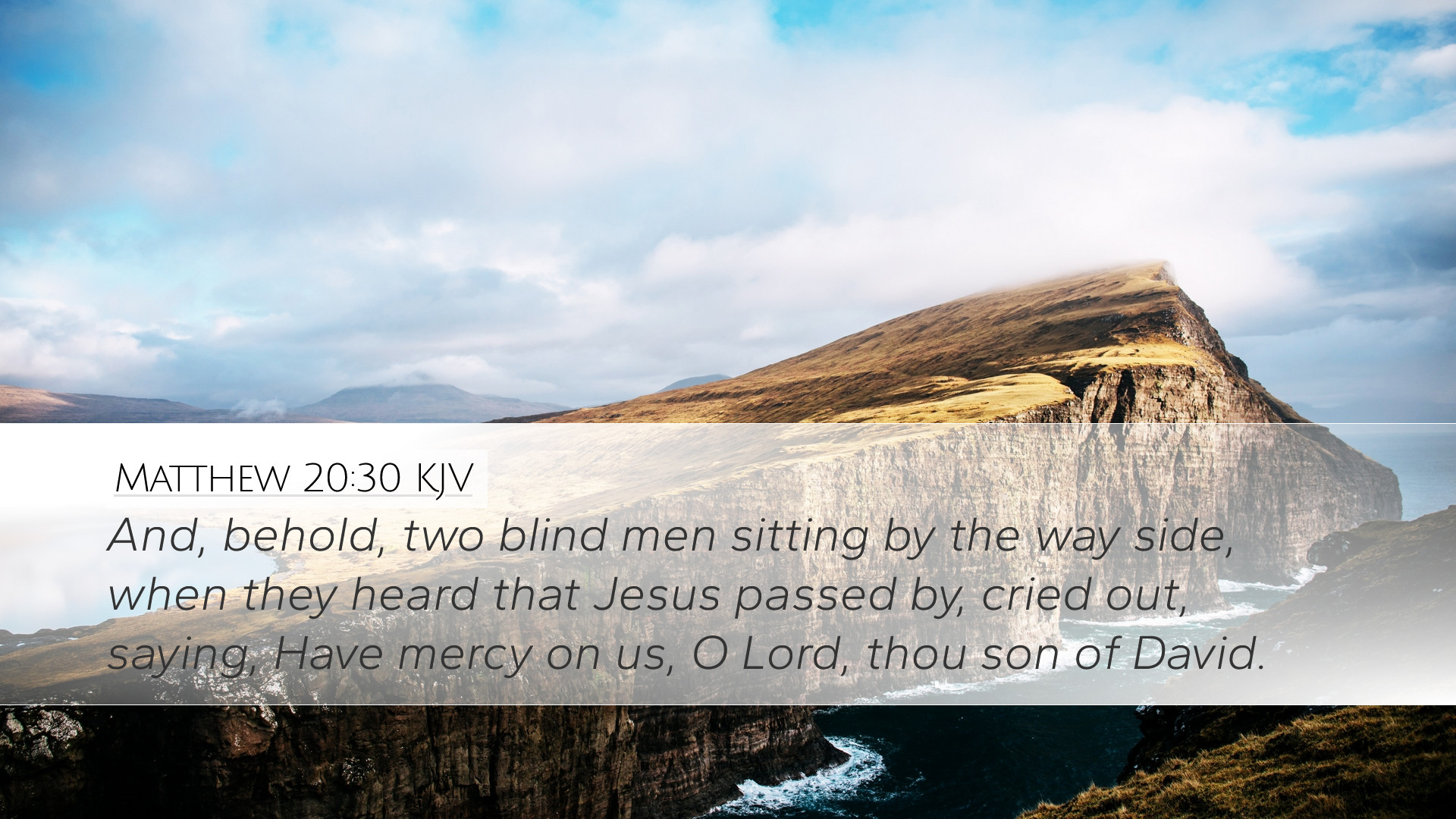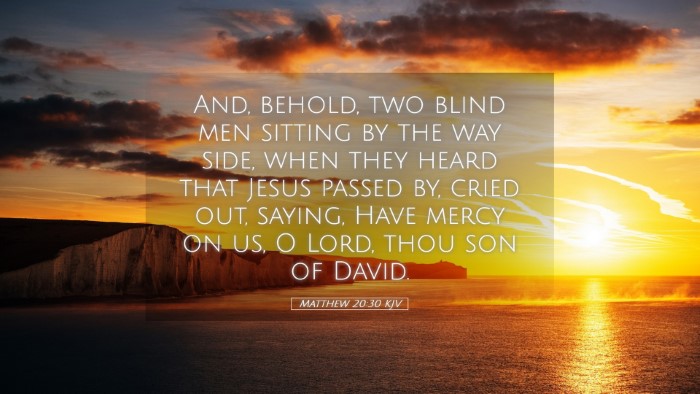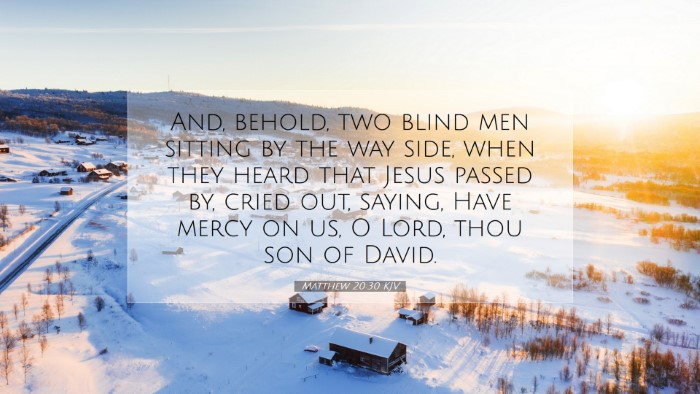Commentary on Matthew 20:30
Verse: "And, behold, two blind men sitting by the way side, when they heard that Jesus passed by, cried out, saying, Have mercy on us, O Lord, thou Son of David."
Introduction
This verse presents a powerful moment in the Gospel of Matthew, encapsulating themes of faith, mercy, and the recognition of Christ's divine authority. It invites deep reflection on the nature of healing and the human condition of neediness. Drawing on the insights of prominent public domain commentators, including Matthew Henry, Albert Barnes, and Adam Clarke, we will explore the layered meanings within this text.
Contextual Background
Matthew 20:30 occurs in a significant narrative context as Jesus is making His way to Jerusalem. In this journey, Jesus is preparing for the final confrontation that will lead to His crucifixion. The presence of the two blind men by the roadside serves as a poignant contrast to the spiritual blindness present in the religious leaders of the time.
Exegesis of the Verse
The Characters
- The Blind Men: The two individuals represent those marginalized in society, highlighting the theme of desperation and hope.
- Jesus, the Son of David: The title "Son of David" signifies messianic recognition and underscores Jesus' royal lineage, affirming His rightful place as the anticipated King.
Their Cry for Mercy
The blind men, upon hearing Jesus' approach, exhibit faith by calling out for mercy. Their cry is not a mere request but an acknowledgment that they are in need. Matthew Henry remarks that their persistent calling reflects their earnest faith. They recognize that Jesus is their only hope for restoration.
Thematic Elements
Mercy and Healing
Mercy is a central theme of this verse. The blind men's appeal to Jesus signifies a yearning for divine compassion. Albert Barnes notes that their request is indicative of true faith, as they do not demand healing but humbly request mercy. This approach serves as a model for all who seek the Lord, reminding us that our requests to God should be rooted in humility.
Faith Amidst Adversity
The blind men’s boldness in crying out amidst the crowd illustrates the essence of true faith, which persists even when faced with societal obstacles. Adam Clarke emphasizes that their determination to call on Jesus demonstrates the character of genuine faith, which is undeterred by the opinions or indifference of others.
Theological Reflections
Christ’s Compassion
This passage beautifully illustrates Christ’s compassion towards those in need. His readiness to listen to the pleas of the marginalized serves as a testament to His character as a healer and savior. It invites pastors and theologians to reflect on the nature of ministry—how are we, like Christ, responding to the cries of those in desperate need?
The Importance of Recognition
The blind men’s recognition of Jesus as "the Son of David" is significant. This statement encapsulates their understanding of Jesus’ identity and authority. Matthew Henry highlights that true understanding of Christ’s nature leads to a deeper faith. As scholars and students of the Word, recognizing who Jesus is will deepen our desire for His mercy and healing.
Application for Today’s Believers
Responding to the Call of the Needy
In a world where many are spiritually and physically blind, this passage challenges contemporary believers to respond actively to the cries of the needy. It serves as a reminder to embody the mercy that Jesus represents, reaching out to those who are suffering and marginalized.
The Role of Faith in Healing
The healing of the blind men is a profound illustration of how faith interacts with divine power. For pastors and theologians, this passage encourages exploration of the dynamics of faith and healing—a powerful reminder that while we seek God for our needs, we must also engage in deeper faith practices in our communities.
Conclusion
Matthew 20:30 encapsulates a moment of desperation met with divine mercy, showcasing the essential characteristics of Jesus as the compassionate healer. As we meditate on the insights drawn from public domain commentaries, let us be inspired to lead lives marked by faith, compassion, and an unwavering recognition of Christ’s authority. By embracing the lessons from this passage, we can better serve our communities and reflect the character of Christ in all our dealings.


